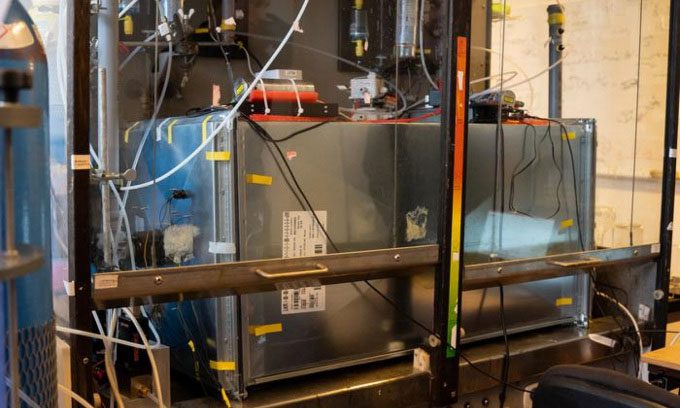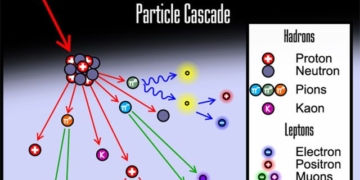The new system uses chlorine and light to accelerate the degradation of methane, a greenhouse gas contributing to global warming.
A research team at the University of Copenhagen has developed the Methane Photocatalytic Degradation System (MEPS) with ultra-fast methane degradation capabilities, as reported by Interesting Engineering on December 19. The new research findings were published in the journal Environmental Research Letters.

MEPS methane processing system in the laboratory. (Photo: Michael Skov Jensen/SCIENCE/KU)
Methane is a type of greenhouse gas that can be released from natural sources such as wetlands or from human activities such as food production, wastewater treatment, and natural gas production. Once it enters the atmosphere, methane can take up to 12 years to naturally decompose into CO2.
According to the Intergovernmental Panel on Climate Change (IPCC), methane has caused the global average temperature to rise by 0.6 degrees Celsius, with concentrations of this gas increasing by 150% since the mid-1700s due to human activities. The IPCC recommends reducing methane levels to quickly mitigate global warming.
“Methane decomposes very slowly because it does not easily react with other substances in the atmosphere. However, we discovered that with the help of light and chlorine, we can trigger a reaction and decompose methane about 100 million times faster than in nature,” stated Matthew Stanley Johnson, a professor of atmospheric chemistry at the University of Copenhagen.
With MEPS, the research team created a reaction chamber resembling a long metal box with several soft tubes. Inside the box, chlorine and light are used to initiate a chain reaction that helps decompose methane.
Initially, the experts gather methane in the reaction chamber, then introduce chlorine molecules. Next, they use UV light to separate a chlorine molecule into two reactive chlorine atoms. These chlorine atoms then “steal” hydrogen atoms from methane to produce hydrochloric acid (HCl)—a substance that can be captured and recycled. The methane atoms decompose into CO2, CO, and H2 just like in nature but about 100 million times faster.
In experiments, the research team found that the new method could help reduce methane levels in the air by 58%. The system has also been improved to process 88% of the methane in the reaction chamber. The experts are scaling up this new technology to fit into a 12-meter container, which can connect to ventilation systems in livestock farms, where significant methane emissions occur.




















































